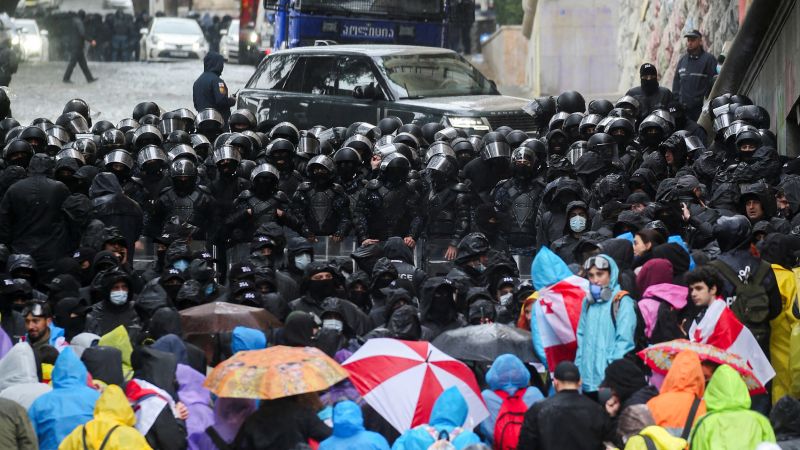The US State Department has announced a new visa restriction policy in response to a repressive law and crackdowns on protests in Georgia. Secretary of State Antony Blinken stated that the policy would target individuals responsible for undermining democracy in Georgia, including those involved in suppressing civil society and freedom of peaceful assembly through violence or intimidation. The United States will also initiate a review of its bilateral cooperation with Georgia. This decision comes after Georgian President Salome Zourabichvili vetoed a bill that would require organizations receiving significant funding from abroad to register as “agents of foreign influence” or face fines. Despite the veto, the country’s parliament could still overrule it with a simple majority.
The new bill in Georgia, supported by the ruling party, has faced strong opposition both domestically and internationally. Critics argue that the legislation mirrors those in Russia used to suppress opposition, while the ruling party insists that it promotes transparency and national sovereignty. The European Union has cautioned that the law could jeopardize Georgia’s chances of joining the bloc if enacted. The country, which applied for EU membership in 2022 and was granted candidate status, is facing significant backlash over the controversial bill. Thousands have taken to the streets in protest, with clashes breaking out between masked officers and demonstrators.
President Zourabichvili has emphasized the importance of upcoming elections in October as an opportunity for the population to reverse the bill through political mobilization and electoral victory. She highlighted the need to capitalize on societal mobilization and political consolidation to shape a path towards a more democratic future. The European way, Zourabichvili suggested, involved utilizing the unity and determination demonstrated by the population and political parties to win at the ballot box. The ongoing debate and resistance to the bill highlight the deep divisions within Georgian society and the challenges the country faces in balancing democratic values with national security concerns.
The visa restrictions imposed by the US State Department target individuals involved in undermining democracy in Georgia and their family members, signaling a significant shift in relations with the country. The move is a clear response to the repressive law and crackdowns on protests that have raised concerns about the erosion of democratic principles in Georgia. By initiating a review of bilateral cooperation, the United States is sending a strong signal that it stands with those advocating for democracy and freedom of assembly in Georgia. The decision to implement these restrictions underscores the gravity of the situation and the international community’s commitment to upholding democratic norms and values in the face of authoritarian tendencies.
The backlash against the bill in Georgia has not only sparked protests and clashes but has also drawn condemnation from international partners like the European Union and the United States. The bill, seen as fundamentally Russian in nature by President Zourabichvili, has raised concerns about its impact on the country’s democratic aspirations and European integration. With the upcoming elections viewed as a crucial opportunity to reverse the legislation, the political climate in Georgia remains tense and uncertain. The continued resistance to the bill both domestically and internationally underscores the challenges facing Georgia as it navigates its path towards greater democratization and European integration.













